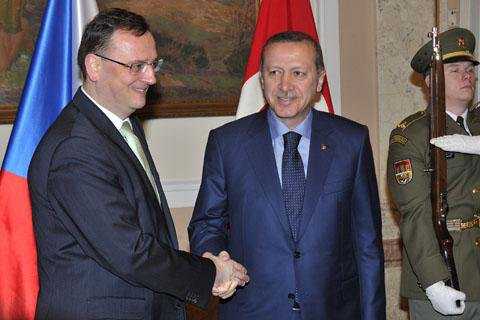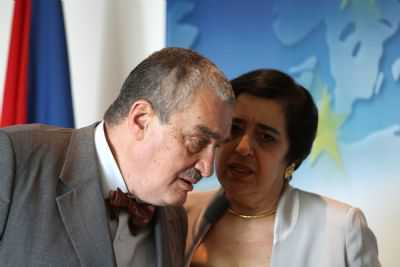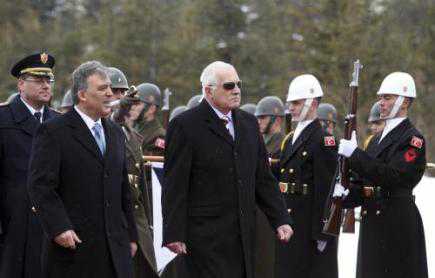Sarah Palin called for the invasion of the Czech Republic today in response to the recent terrorist attacks in Boston.
In an interview with Fox News, the former governor of Alaska said that although federal investigators have yet to complete their work, the time for action is now.
“We don’t know everything about these suspects yet,” Palin told Fox and Friends this morning, referring to Tamerlan and Dzhokhar Tsarnaev, who allegedly carried out the Boston Marathon attacks. “But we know they were Muslims from the Czech Republic.
“I betcha I speak for a lot of Americans when I say I want to go over there right now and start teaching those folks a lesson. And let’s not stop at the Czech Republic, let’s go after all Arab countries.
“The Arabians need to learn that they can’t keep comin’ over here and blowing stuff up. Let’s set off a couple of nukes in Islamabad, burn down Prague, then bomb the heck out of Tehran. We need to show them that we mean business.”
Can’t See Russia…
Although hosts Steve Doocy and Gretchen Carlson applauded Palin’s jingoism, they immediately attempted to rectify her multiple geographic errors.
“Well Islamabad is the capital of Pakistan, which isn’t Arab,” Carlson corrected, “and Tehran is the capital of Iran, which is predominantly Persian. But I do see your point.”
“Also Czech Republic isn’t really an Arab or even Muslim country, I don’t think,” Doocy added, “but otherwise what you’re saying makes a lot of sense. I think most Americans wish Obama would step up and lead on this one.”
Palin, however, didn’t take kindly to being corrected and defended her analysis.
“Steve, that’s probably one of the most ignorant things I’ve ever heard. How is Czech Republic not a Muslim country? You saw those brothers, they were Islamic and they were Chechen!”
“Yes there were Muslim and they were ethnic Chechens,” Doocy started, “but they grew up mostly in Kyrgyzstan and the United States. And more importantly, Chechens don’t come from the Czech Republic, they come from Chechnya, which is part of Russia. ”
“What’s the difference?” Palin responded. “Isn’t Russia part of the Czech Republic?”
“No, the Czech Republic is a separate country. It’s part of the European Union and a strong NATO ally,” Doocy noted. “But heck, why not? Let’s invade. What could go wrong?”
“Yeah and while we’re at it,” Carlson added, “let’s call the Queen of England and see if the U.K. will join us.”
In a statement released after the interview, Palin attacked Fox News and its “pro-Islamic” and “pro-geography” bias.
“This is just another case of the politically correct liberal media refusing to tell the truth about radical Islam,” she said.





